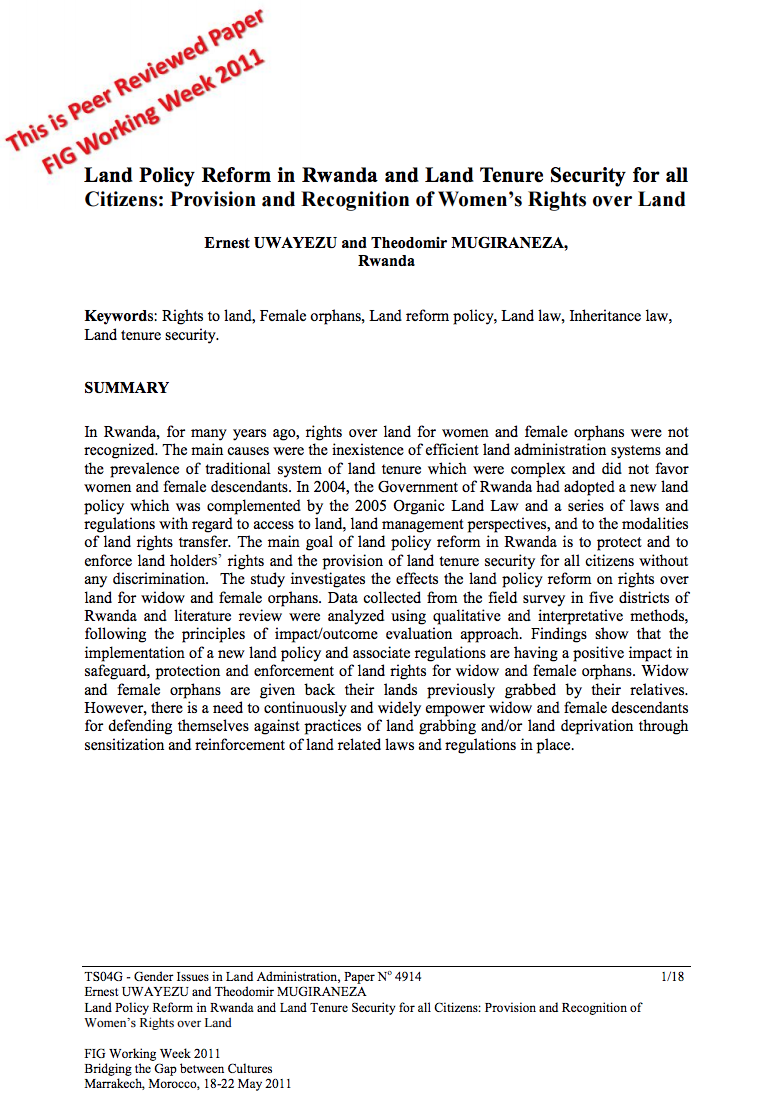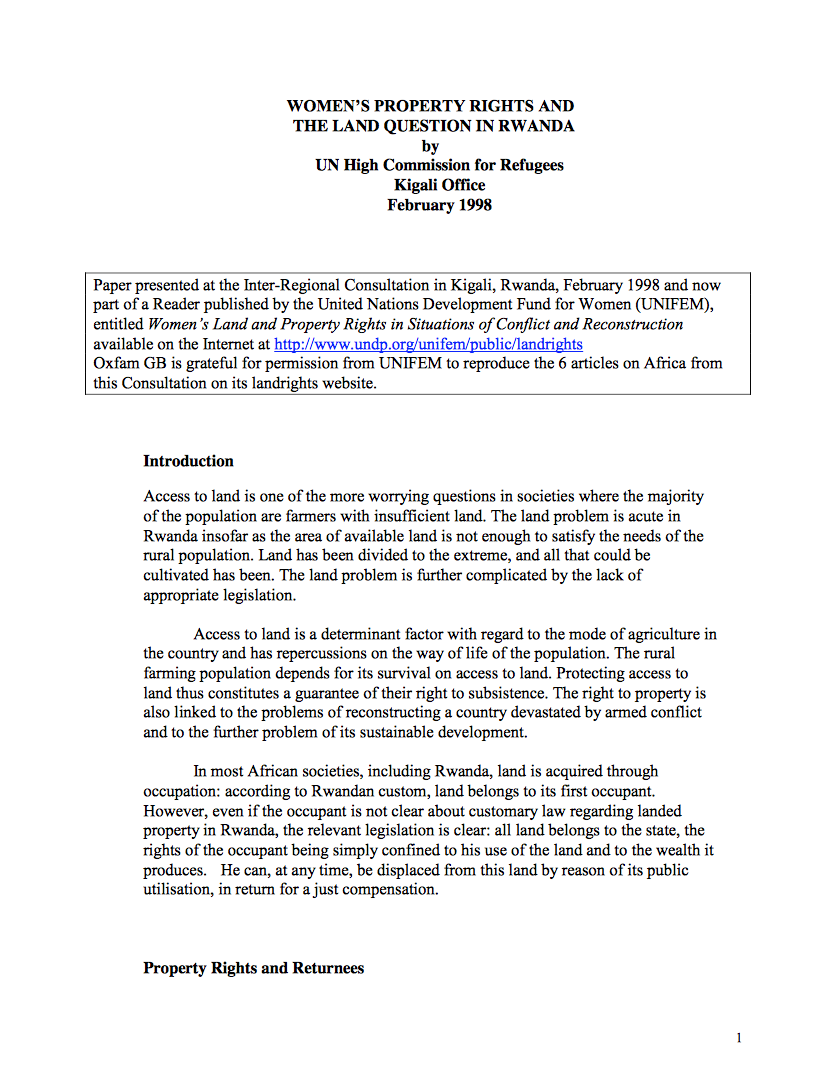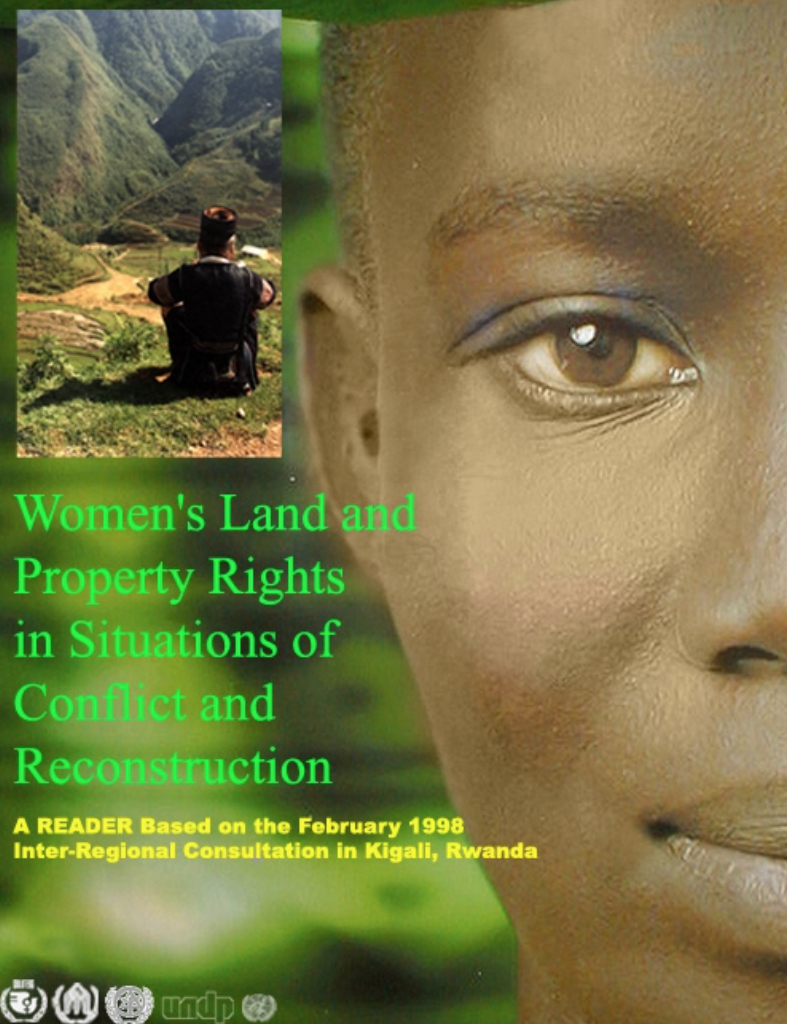Women’s Land Rights in Customary Dispute Resolution in Rwanda: Lessons from a Pilot Intervention by RCN Justice et Démocratie
This brief discusses a pilot intervention in Rwanda led by the Belgian
NGO, RCN Justice & Démocratie, with support from the International
Development Law Organization (IDLO) and the Belgian Government. A
more detailed and complete discussion of the pilot is given in Lankhorst
and Veldman (2011a). The pilot aimed to transform the customary
resolution of disputes involving women’s land claims concerning
inheritance or marital relations. The intervention examined whether
and to what extent it was possible to increase the scope for acceptance












